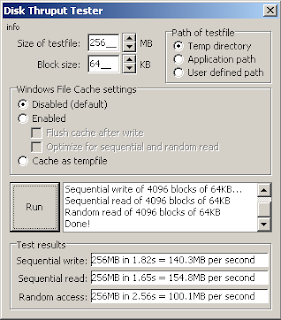I/O Performance, no SW FDE
I/O Performance with SW FDE
So, when we analyze the performance we see a significant performance reduction:
I/O comparison
An immediate performance loss of 50%!!! Note that "Random Access" is the most relevant I/O for the overall performance of the drive. This is a new SSD. Remember that the performance will degrade, even during 'normal' use due to flash memory 'wear and tear' and additional performance reduction will occur due to the entropy in the encryption of SW FDE.
Remember the performance of a fully encrypted SED SSD (Micron OPAL compliant SED SSD)? The performance is and never will be reduced by encryption since a hardware encryption module is used (realtime encryption on a Micron SSD SED):
SED SSD performance
Maybe you should consider Self Encrypting Drive SSDs. Next to the performance (happy users!) there are some other compelling reasons to use SED SSDs. Most notably the cost of managing and maintaining those drives (happy CFO!) and time and complexity spent to initialize and maintain the drives (happy system admins!).
SSD SEDs are produced by Seagate, Micron, Samsung and other drive manufacturers. The SED (aka Opal) standard is defined by the Trusted Computing Group. SED management is done with Wave EMBASSY Remote Administration Server (ERAS).




